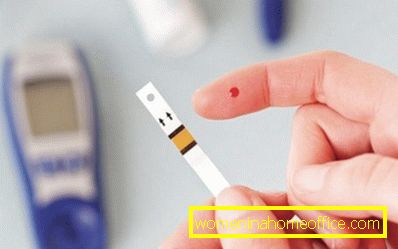Urinary tract infection
One of the most common pathological conditions in women is considered to be urinary tract infection. The disease is caused by a number of factors, but in most cases it is bacteria, which determines the successful use of antibiotic therapy. Consider when a urinary tract infection is able to manifest itself, symptoms in women, treatment and preventive measures.
Urinary tract infections: methods of infection

Infection usually begins in the urethra and bladder and then spreads through the ureter to the renal pelvis. In the overwhelming majority of cases, the infection occurs with its own bacteria, the habitat of which is the lower part of the intestine. This is E. coli, which is considered part of the normal flora.
Urinary tract infections occur when these bacteria from the intestine, for example, penetrate the urethra through the skin in the anal area and from there further into the bladder. There they multiply rapidly, and it is often the case that these microbes cannot be washed out soon enough.
Women are more prone to further infection than men. This fact is due to the fact that the female urethra is much shorter in length, and this contributes to the migration of bacteria into the bladder, where they then cause inflammatory processes. Some pathogens produce an enzyme that makes urine less acidic. In an alkaline environment, bacteria improve their development rates.
Also, the ways of infection include:
- penetration of pathogens into the urinary system through the bloodstream;
- installation of the catheter for a long time;
- direct infection: peritonitis, diverticulitis, gynecological pathologies associated with inflammatory processes.
Most of these infections are relatively harmless, but they can also lead to serious or even life-threatening complications.
Factors predisposing to the occurrence of UTI:

- diabetes;
- restriction of urination of a different nature;
- stone formation in the urinary system;
- the result of the study of the urinary system directly through the instrument;
- immunodeficiency;
- metabolic diseases;
- insufficient fluid intake and low diuresis;
- heredity;
- sexual intercourse, especially anal sex;
- kidney disease.
Factors directly related to men:
- prostate enlargement or cancer of the gland;
- narrowing of the foreskin;
- anomalies, especially in children.
Circumstances leading to infection in women:
- pregnancy;
- mechanical or chemical contraceptives.
Separately it is necessary to say about urinary tract infections in pregnant women. In the period of carrying a baby, the development of this kind of infection occurs much more often. The reason for this lies in the change in hormone levels, as well as in the effects on the bladder and ureters, which is fraught with congestion in the urinary system and the multiplication of pathological microorganisms. That is why increased attention is paid to controlling urination in pregnant women.
Symptoms accompanying pathology
MP infection causes discomfort in the lower urinary tract:
- pain and burning at the time of urination;
- pain, cramps in the lower abdomen;
- difficulty urinating;
- increased urge to urinate;
- increased urination at night;
- turbid urine;
- blood in the urine.
The development of infection in the ureters, renal pelvis is accompanied by symptoms such as:

- fever;
- severe malaise;
- constipation;
- back pain;
- frequent urination;
- difficulty removing urine;
- increase in heart rate;
- nausea.
Examination and Diagnosis
When making a diagnosis of urinary tract infection, an indication of the ICD code N39.0 is possible. 10. In compiling the history, the doctor takes into account the symptoms and physical examination. According to the results of the study of urine, the content of pathogenic microorganisms and blood is determined. The presence of inflammatory processes is checked by a blood test. Ultrasound studies can determine the presence of stones or pyelonephritis. When collecting urine, it is necessary to select material from the middle of the stream, the beginning and end is lowered.
Therapy methods
Treatment depends on the severity, nature and cause of the infection. To flush the paths, it is necessary to consume liquids up to 3-4 liters per day. This applies to all types of urinary tract infections. And especially true for older people who have a slight sense of thirst.
The use of antibiotics for bacterial infections can help in a few days. Antibiotic therapy must necessarily be carried out long enough to avoid relapse. It is important to know that pregnant women should be treated. Pain killers are also prescribed.

Herbal remedies are used for lung infections of the lower urinary tract or as an adjunct after antibiotic treatment. Surgical intervention is necessary in case of detection of stones, strictures, valves and other pathologies.
Using the example of urethritis in women, we consider the treatment of a complicated urinary tract infection, leading to inflammation of the mucous membrane of the urethra. Mostly urethritis is sexually transmitted and requires the treatment of both partners. However, nonspecific pathogens are possible. The basis of therapy is antibiotics. In the case of non-urethritic urethritis, the urethra is washed with silver nitrate, mercury oxycyanine, and others. Appointed a strict diet, excluding spicy foods and alcohol.
Summing up, we also note the role of prevention of urinary tract infections. For this, simple actions are often enough. First, you need to use at least two liters of fluid a day and dress warmly. Secondly, it is important to pay attention to proper hygiene after a bowel movement, which will not allow intestinal sticks to get into the urethra. Thirdly, intercourse should be preceded by urination, and at the end of love joys should not postpone it. And of course, use underwear only from natural materials. Do not be ill!